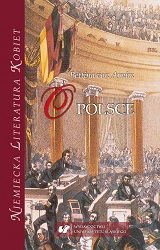
We kindly inform you that, as long as the subject affiliation of our 300.000+ articles is in progress, you might get unsufficient or no results on your third level or second level search. In this case, please broaden your search criteria.


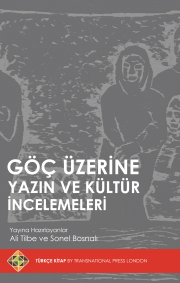
Mitler çağından beri insanoğlunun yaşamı değiştirip dönüştürme gayretlerinin bir sonucu olarak edebiyat, topluma ve yaşama dair söylenecek sözlerin etkili bir aracı olmuştur. Bu durum edebiyatı giderek ideolojik bir nesneye dönüştürdüğü gibi kimi zaman korkulan kimi zaman da gücünden yararlanılan bir özne olarak, toplumsal dinamiklerin ön safında yer almasını da sağlamıştır. Bu nedenle 19. yüzyılla birlikte dünya düşünce tarihinde boy göstermeye başlayan ideolojiler için edebiyattan daha verimli bir hareket alanı yoktur, denilebilir.
More...
Sonuçları önceden hesap edilmemiş olsa da, tarihleriyle, kültürleriyle, değerleriyle; kısaca kendilerine özgü dünyalarıyla; ailelerinden uzakta, sıla özlemi çeken, yalnız, dışlanmış, birçok sorunları olan bir topluluk meydana gelmiştir. İsviçreli yazar Max Frisch bu gerçeğe, “İş gücü istenmişti, insanlar geldi,”(Frisch, 1991: 14) diyerek dikkat çekmiştir. Zafer Şenocak da, “İş gücü demek, yedek parça demek değil. Onlar birer insan. Geçmiş bir tarihleri, kendilerine özgü bir dünyaları ve kültürleri var,”(Şenocak, 1986: 65-70) demiştir.
More...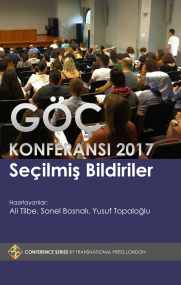
1972 yılından beri Berlin’de yaşayan Güney Dal, eserlerini Türkçe yazmaktadır. 12 Mart döneminde Almanya’ya gitmiş siyasi sürgün yazarlardandır. 1944 Çanakkale doğumlu olan yazar, Türkiye yıllarında radyoculuk ve tiyatro ile ilgilenmiş, oyunlar ve öyküler yazmıştır. Almanya’ya gittikten sonra yazarlığa devam etmiş ve 1976 yılında ilk romanı İş Sürgünleri’ni (Memeleri Büyüyen İşçi) yazmıştır. Romanları Almanya’nın önemli yayınevleri tarafından yayınlanan Dal, çeşitli ödüller almış ve Yüksel Pazarkaya ile de bir antoloji hazırlamıştır. Antolojisi ise, Yüksel Pazarkaya ile 1990 yılında hazırladıkları Geschichten aus der Geschichte derTurkei’ dir.
More...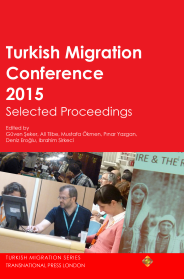
Göç, insanlık tarihinin hiçbir döneminde yok olmamış, çeşitli sebeplerle varlığını daima korumuş bir olgudur. Yaşamı başka yerde sürdürme kararı kolay bir karar değildir. Savaşlar, tabii afetler, can ve mala dair emniyetsizlik, geçim sıkıntıları, siyasal baskılar, daha özgür yaşama arzusu, göç için, bilhassa kitlesel göç hareketleri için temel sebeplerdir ve kişilerin çoğu kez bu hallerde fazla düşünme şansları yoktur. Sürgün de kişilerin yahut kitlelerin üzerinde fazla düşünme şansının olmadığı bir tür göçtür. Bir de başka bir mekânda hayatı devam ettirmeyi arzulayan, tamamen şahsın iç dünyasının arzusuna göre şekillenen mekân değiştirmeler vardır. Daha çok ferden (yahut eş ve çocuklarla) gerçekleşen bu yer değiştirmeler de bu gruplar içerisinde anılabilirler; çünkü neticeleri itibariyle kültürleşme, entegrasyon, kimlik sorunları vs. bu göçlerde de benzer sorunlar olarak ortaya çıkar.
More...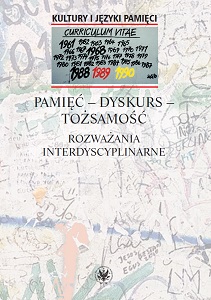
On the basis of relevant works of art contemporary concepts about remembrance will be presented to the forced migration of Germans. This is Christine Bachmann with “BIRKENORT. VANISHING POINTS”, Rosemarie Zens with The Sea Remembers David Adam with Marie Scheibner, among other things, Heike Lydia Grüß with Der getrübte Körper/The clouded body, Yvon Chabrowski with Sun + Land + Diagonal and Sven Johne with Ostpreußen/East Prussia. The works were created in the period from 2003 to 2014 and situate itself in the Czech Republic, Poland and the Kaliningradskaya Oblast. The media of photography and film are preferred. The focus is on critical analysis of the traditional canon of motifs, with image structures and mechanisms of presentation.
More...
The main assumption of presented article is dwelling on the term of memory and ways of presenting the past in modern culture on the example of the work of a painter Miroslaw Balka. The artist is characterized by a visual acuity of phenomena surrounding him and a special concentration on the other man with all aspects of his life as well as awareness of the past, his own biography and the artistic work. Time and history influence his work and are shaping their form.
More...
The German trilogy consists of three films by Christoph Schlingensief: „Das deutsche Kettensägenmassaker“, „100 Jahre Adolf Hitler“, „Terror 2000“. On the political uncorrect way the regisseur deals with the unsolved problem of the getting over of the Nazi-time and its delayed effect of neo-nazizm and the east-west-confrontation after the German reunion. He represents hereby a different opinion from the official political line.
More...
This article presents ways in which memory can exist in digital texts. We characterize digital representations of the work of human memory, the influence of digital technology and changes in the digital narration on realization of mnemonic function of the text (e.g. the use of the perceptive linearity, intersemiotic repetition, engaging the user in the creation of texts). Structural tricks and textual strategies used to create the textual representation of different existing forms of memory are analyzed on the example of digital poetry and hypertext narration. These are for instance: the remembering, the mentioning, the recalling, the presenting of the past.
More...
In the analyzed Polish mems a selective treatment of culture and a duplicationof stereotypes concerning the appearance of German women,men and the German language can be observed. However, in the memsthere appear new elements which are connected with a clever observationof the changes that take place, and an awareness of the existenceof stereotypical images, and, perhaps, an attempt at referring to themin a perverse way (a series Ładna Niemka – ‘A Pretty German Woman’).In the series with the phrase Niemiec płakał, jak sprzedawał (A Germanwas crying as he was selling) we can notice a play with the typicalperception of German cars, their owners and the arguments of carsalesmen. Therefore, on the one hand, mems strenghten conventionalperspectives, and on the other hand, they oppose them, frequentlyshowing their absurdity, ridiculousness and conventionality.
More...
The article presents an analysis of the construction of the memory in the book Jerominkinder by Ernst Wiechert. In the first part the author describes the reception of Wiechert’s work in Poland in consideration of a turning point in 1989. After that, the author passes on a definition of the memory. The next part describes the most important elements of the memory of the inhabitants of Sowirog. The wars, above all the World War I, and the persons of Mr. von Balk and Michael Jeromin were mentioned.
More...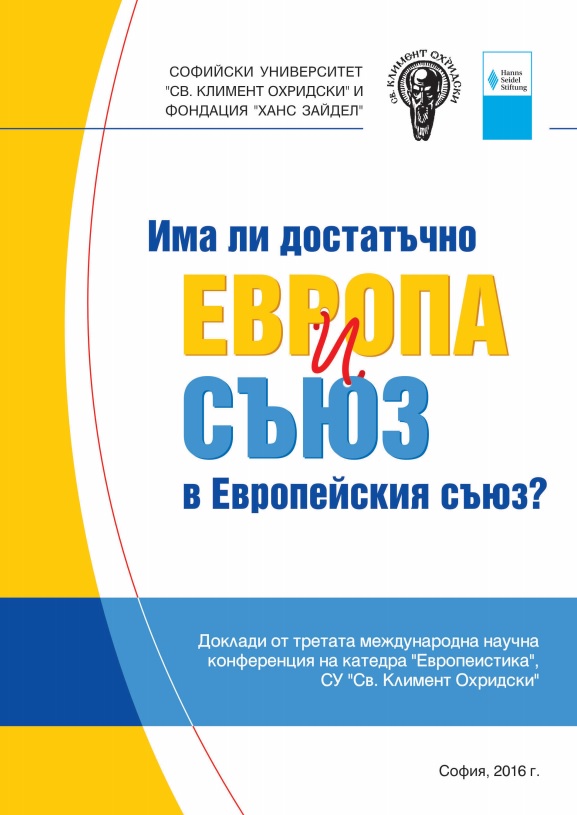
The present article reviews contemporary trends in German literature regarding political aspects of the identity. Author discusses Deutscher Buchpreis, authors’ profiles and their publications with the goal to demonstrate the relation between the literature and its institutionalization – a process thorough which indirectly but consistently political identity aspects of the modern Europeans are being established.
More...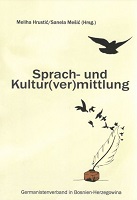
We live in a culturally pluralistic society whose level of development is also measured by the degree of intercultural openness. Scientists agree that children should be enabled to be “intercultural speakers” and that literature can support intercultural learning. The article examines the potential that literature didactics ascribes to the use of German children's literature on the topics of cultural diversity, tolerance of ambiguity, appreciation of otherness, etc. to promote intercultural competence. Based on current cultural studies approaches to subject areas that are attracting increasing attention today, Uticha Marmon's Mein Freund Salim (2015) and Peter Härtling's Djadi, Flüchtlingsjunge (2016) are examined with regard to their potential for intercultural literature lessons. The following questions guide the research: How can the necessity of intercultural education be justified today and what purposes does intercultural learning serve? How can cultural differences be addressed with the help of literary works in literature lessons and to what extent do the two selected prose texts serve to develop intercultural skills in school lessons?
More...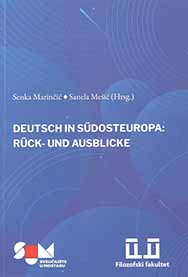
The paper will deal with various images and stereotypes of Balkan countries in the works Adler und Engel and Die Stille ist ein Geräusch of Juli Zeh. The emergence of stereotypes is often linked to the perception of one’s own and thus to the constitution of a self-image. Juli Zeh is one of the best German authors of the younger generation. The Balkans prove to be the leitmotif in these works. Her debut novel Adler und Engel (2003) has been translated into 31 languages and speaks about drug trafficking and war in the Balkans. In 2001 she traveled to Bosnia and Herzegovina and in her travelogue Die Stille ist ein Geräusch (2001) describes the country and first-hand experiences after the war. In conclusion, it can be said that Juli Zeh does not deal theoretically with stereotypes, but postulates the concepts with which people perceive and interpret the world. She wants to get to know and experience the unknown country herself and introduce her to the people. In doing so, however, she indirectly, subconsciously also produces negatively connoted stereotypes.
More...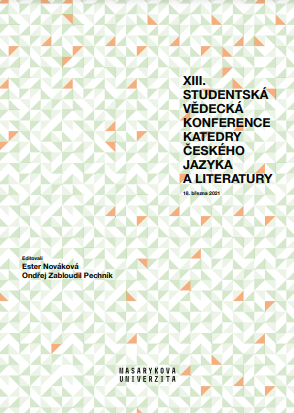
Každé umělecké dílo představuje ojedinělý prostředek komunikace, jenž individuálně působí na každého jedince, vyvolává určité obrazy, představy či emoce. Přijetí uměleckého díla ovlivňuje řada faktorů zahrnujících individuální i sociální předpoklady recipientů. V případě recepce literárního či divadelního artefaktu dětským čtenářem i divákem je pak významným prvkem také omezená životní zkušenost. Výhodu však představuje bezprostřední a otevřený způsob komunikace dětí. Příspěvek se zabývá výzkumem identifikace dětských čtenářů a dětského divadelního publika s uměleckým dílem. Uvádí dílčí výsledky obsahové analýzy reflektivních dílen, které doplňují a konkretizují předchozí prezentované výstupy v rámci disertačního projektu.
More...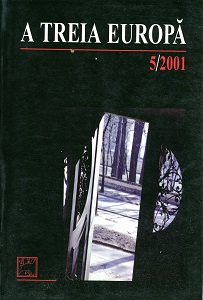
în momentul în care, pe când urmam cursurile Facultății de Jurnalistică, ni s-a vorbit despre informații și corespondențe din domeniul judiciar, Ritter Aladâr ne-a trimis să asistăm la un proces. Era vorba despre un caz sângeros, care a tulburat profund opinia publică. La galerie, oamenii atârnau pur și simplu în ciorchini. Erau curioși să vadă cum arăta fiara ce căzuse în capcană. Vociferau, erau gălăgioși, interveneau, președintele tribunalului abia reușea să stăpânească situația, în privința acuzatului era oarecum simplu de demonstrat că se dăduse drept diplomat, că sedusese câteva tinere superbe, le violase, apoi le omorâse. Uneori se întâmplase chiar invers : mai întâi le omorâse, apoi le violase. Toate acestea motivau pe bună dreptate revolta asistenței, pentru că nici un om așa-zis normal nu face așa ceva. Probabil că în sală era prezent și Fejes Endre, pentru că la puțin timp după aceea el a scris o povestire despre acest caz, după care s-a făcut și un film, rolul principal fiind interpretat de un tânăr actor chipeș și inteligent. Dar acest vampir, asupra căruia onorata asistență s-ar fi năpustit cu bucurie pentru a-1 sfâșia cu unghiile și cu dinții, nu era nici chipeș, nici inteligent, nici măcar viclean. Lăsa mai degrabă impresia unui copil handicapat fizic și spiritual, rămăsese prea scund, era dizgrațios de gras, avea fața plină de coșuri mari cât pumnul, iar pe deasupra se și bâlbâia. Probabil că publicul era iritat și de faptul că, ori de câte ori se ajungea la detalii palpitante, președintele solicita ca dezbaterea să aibă loc cu ușile închise. Această cerere era dictată de însăși natura problemei. în fața publicului se putea vorbi liniștit despre ce și cum anume a căsăpit el cu briciul, dar nu și despre cum anume își scotea coada.
More...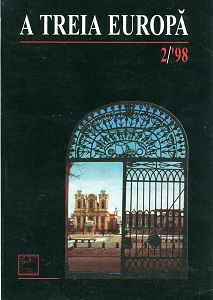
Un important poet american contemporan afirma că „religia e un sunet”. Nu trebuie să ne temem să afirmăm același lucru despre cultură. Cu o precizare simplă: în cultură funcționează arareori dogma și deci ne va fi dificil, mai cu seamă în ziua de azi, să percepem o unică, impunătoare tonalitate. Voci firave, grave, limpezi sau tulburi încearcă armonia. Culturi marginale se străduiesc să-și impună, cu sunet distinct, identitatea, de cele mai multe ori răsfățate de o cultură tradițională deosebit de permisivă, alteori angajându-se într-o modalitate carnavalescă și care, dacă sensibilitatea noastră ar fi mai capabilă de o asemenea reacție, ne-ar scandaliza. Pitorești îndeobște, interesante nu doar pentru că trebuie să fim politicește corecți. Alternative ale „tradiției”, culturi gay, punk, Goth, culturile cartierelor, ale ghetourilor și cele ale tuturor minorităților identificabile palpită căutând să dea un suflu nou unui curent „oficial” pe care, în mod oximoronic, îl percep ca încremenit.
More...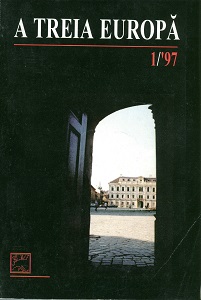
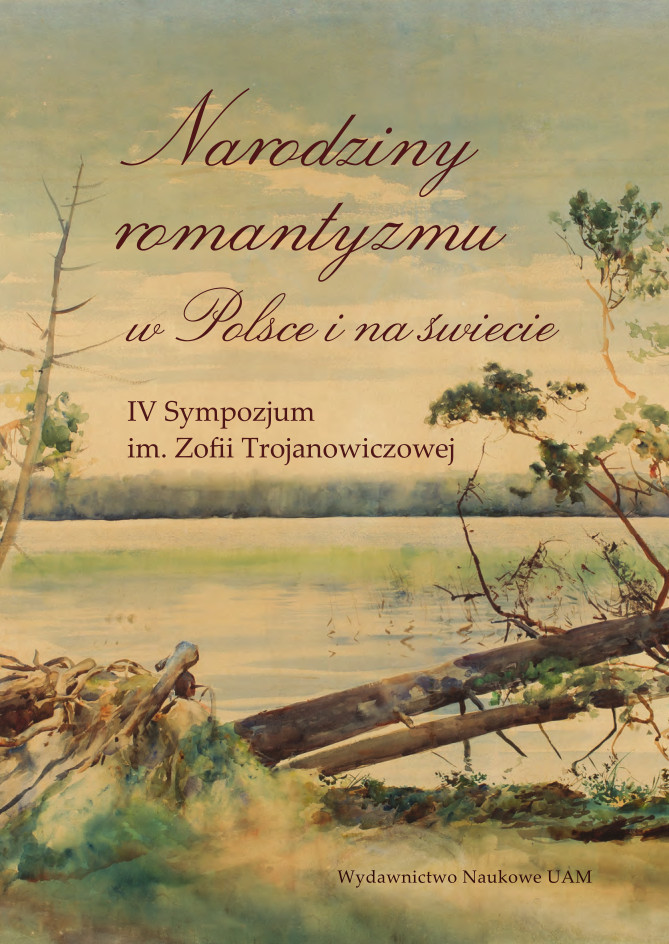
The article deals with the reception of Early German Romanticism (es- pecially of Friedrich Schlegel’s concepts of progressive universal poetry and Romantic irony) in German literature, literary studies and criticism of the 1990s and early 2000s. It focuses on the implied and actual reception of early Romanticism in the works of authors such as Christian Kracht and Rainald Goetz, who are attributed to what is called pop-lit- erature [Popliteratur] in German literary studies. The article also includes an explanation of the term “Popliteratur”.
More...